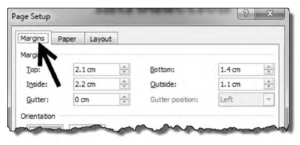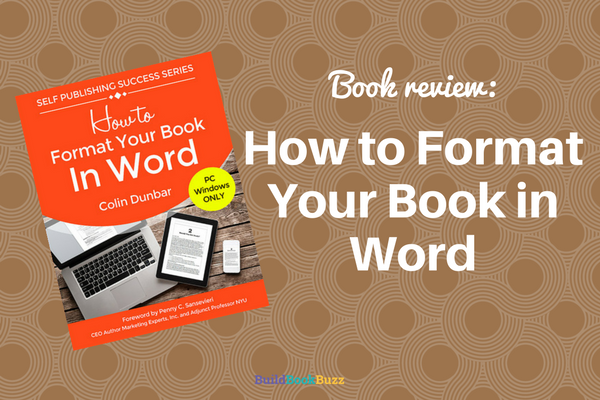Book review: How to Format Your Book in Word
I read How to Format Your Book in Word just about a year ago when author Colin Dunbar asked me if I would write a blurb about it for the “Editorial Reviews” section of the book’s Amazon sales page.
I was happy to do so because the book is appropriate for the authors I work with, but also because I wanted to know the answer to the question posed in the title. The timing was perfect for me as I looked ahead to a book project.
When I pulled out the book again recently, I realized that it might help self-published authors if I wrote a full review here. (Authors with traditional publishing contracts and certain hybrid publishing deals don’t need to format their books’ manuscripts for publication.)
Helpful features
I like the book a lot.
Dunbar provides detailed, step-by-step instructions for formatting in Word for Kindle and Smashwords e-books and for printed books. Only producing an e-book for sale on Amazon? All you’ll need is the Kindle formatting section. Doing e-book and printed books? You’ll do more reading, but you’ll be proud of the end result.
Here are a few features that make the book particularly useful to people who don’t have a lot of publishing experience.
- Definitions: The “Book Structure” section lists and defines every feature you’ll find in a book, from the foreword (not “forward,” as he so wisely points out) to footnotes. It’s the little things that help readers distinguish between high- and low-quality books, and Dunbar makes sure you understand them. (Because they’re really not so “little” after all.)
- Step-by-step instructions: Dunbar walks you through the process with “do this,” “don’t do that,” and “watch out for this” instructions. It feels like he’s sitting right next to you, helping you avoid mistakes as you move through your document.
- “This is what it looks like” examples: It’s hard to make a mistake when you see what the end result is supposed to look like.
- “This is where you click” examples: When you’re using new-to-you technology, you might be unsure of what to click on in a pop-up window or where to find something on your toolbar. Screenshots, many of which include arrows so there are no questions about what he’s referring to, make a big difference.
Some will be disappointed that it’s only available in printed format. I suspect that’s the only option because it can be hard to control placement of screenshots and images in an e-book. In this case, it’s important that the images stay with the accompanying text.
5 stars from me

What stands out the most for me is how much time the author must have spent on documenting and illustrating each step. This is no high-level look at getting your book ready. It’s probably the most specific guide to formatting in Word that you’ll ever find.
Anybody who puts this much effort into a how-to manual truly wants you to succeed. And if you can follow directions, you will succeed.
You might a mistake here and there — mistakes are inevitable when you’re learning — but Dunbar will help you get back on track.
If you’re self-publishing, I highly recommend it.
What other how-to resources do you recommend for self-publishing authors? Please share them in a comment.
Tip of the Month
 I like to share a “Tip of the Month,” a free resource or tool for authors, on the last Wednesday of the month.
I like to share a “Tip of the Month,” a free resource or tool for authors, on the last Wednesday of the month.
The “freelance profiles” section of ResponseSource lets you search for and find freelance journalists by topic or name. Looking for a freelancer who writes about foodservice who might be open to your article idea? Search for “foodservice.” Have you got a book-related article idea about landscaping? Type that into the search box.
Because matches are based on keywords in the writer profiles, you’ll do best if you use broad, rather than specific search terms. For example, “parenting” will probably yield more results than “toddler behavior issues.”
Give ResponseSource a try. If you find a few people who write about what you know about, pitch a few ideas. Good freelancer writers are always looking for qualified sources.
Like what you’re reading? Get it delivered to your inbox every week by subscribing to the free Build Book Buzz newsletter. You’ll also get my free “Top 5 Free Book Promotion Resources” cheat sheet immediately!


One Comment